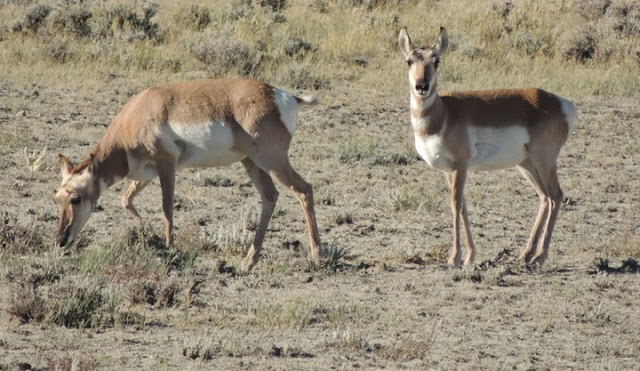While visiting Yellowstone a few days ago, we were on a mission to experience animals in the dramatic autumn setting. Among the many species we encountered was the Pronghorn.
The Pronghorn is often misnamed "antelope", although it is not related to members of that family.
Pronghorns are confined to the western half of the United States and living in Wyoming, I see them often.
They are very fast and have been clocked as high as 70 miles per hour. They shed their horns yearly,
just as antlers are shed by deer, and both sexes have horns . . . females, or does seldom exceed 4 inches.
They are very fast and have been clocked as high as 70 miles per hour. They shed their horns yearly,
just as antlers are shed by deer, and both sexes have horns . . . females, or does seldom exceed 4 inches.
The Lamar Valley in northeastern Yellowstone provided open country and we saw many Pronghorn.
The rut was on, the bucks were interested in the does, and I had ample opportunity
to sketch, photograph, and observe them in their natural habitat.
to sketch, photograph, and observe them in their natural habitat.
Below, are images of Pronghorn taken in Yellowstone's Lamar Valley.
Below, is a sculpture design idea for a pair of pronghorn bookends started after our return from Yellowstone.
The "in the field" experience was fresh on my mind and while working outdoors on the studio deck, I was in the zone.
The "in the field" experience was fresh on my mind and while working outdoors on the studio deck, I was in the zone.
Blog, text, photos, drawings, and sculpture . . . © Sandy Scott


















































